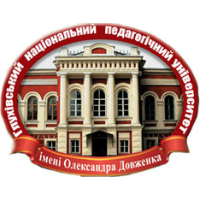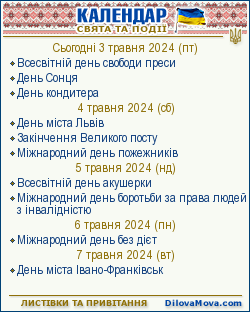Languages
DEMUZ I. O. Public-scientific societies as an inseparable composition of scientific space of Ukraine
The article reveals the role of public-scientific societies in the scientific space of modern Ukraine. The basic definitions of the topic – «scientific company», «public association», «scientific space» – are found out. Some of the existing classifications of public associations in the special literature according to various criteria (V. Bebyk, A. Prygozhyna, L. Loiko), the procedure of typology of socio-scientific societies proposed by V. Savchuk are considered. The author analyzes the current legislative framework that regulates the activities of modern socio-scientific organizations, in particular the Laws of Ukraine «On Public Associations» and «On Scientific, Scientific and Technical Activity».
The classification of these centers is proposed for: 1) branches of knowledge (functional and disciplinary principle) – in accordance with the generally accepted typology of the main blocks of scientific disciplines – natural, technical, socio-humanitarian; 2) organizational-legal form (organizational and management principle): scientific associations, unions, foundations, missions, leagues, public academies of sciences; 3) age principle: adult societies, youth societies (scientific societies of students (cadets, students), postgraduates, doctoral students and young scientists); 4) territorial basis: local (regional), all-Ukrainian, international.
It is emphasized that scientific societies are a specific type of public associations of Ukraine, which requires special theoretical and methodological approaches to their typology and analysis, since science is a relatively autonomous subsystem of society. Scientific societies are social groups of scientists who work in one subject or problem industry and are united by a unified understanding of the objectives of research and methods, certain standards of the results obtained and related to each other system of scientific communications. The most important function of the scientific society is the constitution of new scientific knowledge, which confirms its identification and perception by the scientific community based on the dominant paradigm or research program in it. The formation and development of the scientific society is supported by mechanisms of competition, communication, relationships with other communities, culture, economy, state or society. According to Braudel, life is conducted on the Mediterranean: people travel, fish, fight wars, and drown in its various contexts. And the sea articulates with the plains and islands. Life on the plains is diverse and complex; the poorer south is affected by religious diversity (Catholicism and Islam).
Key words: public-scientific societies, public associations, classification, scientific community, scientific space.
- 794 reads





